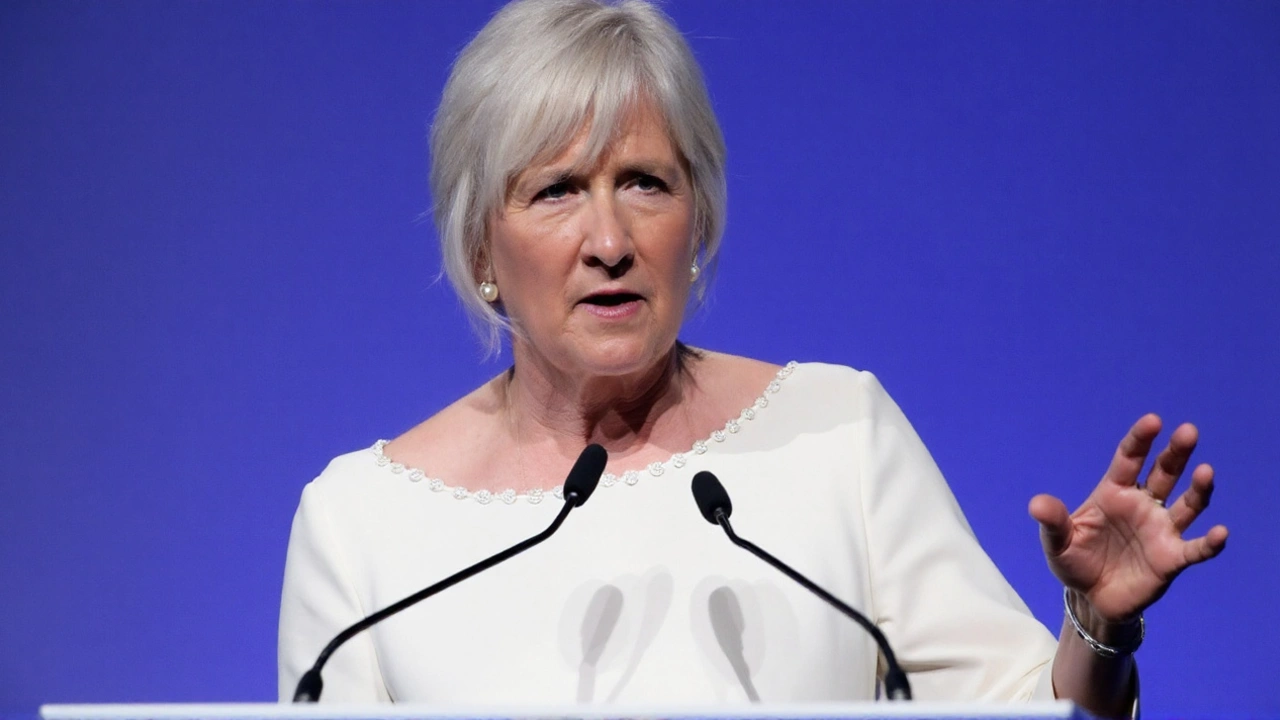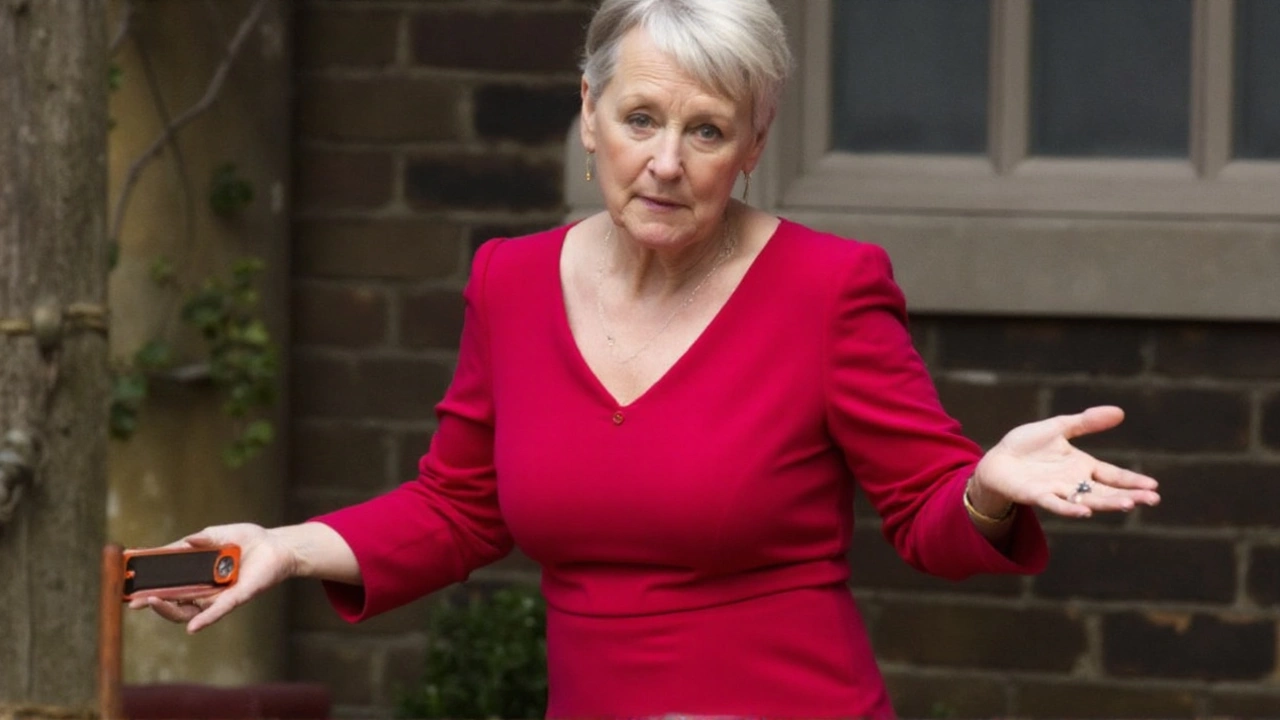What happened on air
Anger erupted online after a live segment on ITV's daytime show This Morning in which Nadine Dorries made a comment that viewers widely condemned as fat-shaming. The exchange lasted only moments, but it was enough to spark a storm. Within minutes, clips were circulating on social media, with viewers voicing frustration and urging the programme to take action.
Dorries, a former Conservative MP and cabinet minister turned media commentator, was appearing as a guest when the remark landed. The show moved on, but the audience didn’t. Many said the language felt mean-spirited and out of step with a programme that brands itself as a friendly, inclusive space for millions of daytime viewers. The tone of the criticism was blunt: people called it disgraceful, asked for an on-air apology, and demanded producers take her off air.
What triggered the fury wasn’t only the words used, but the setting. This Morning isn’t late-night comedy or an edgy panel show. It goes out mid-morning, aims broad, and often features health and wellbeing items. That makes any comment perceived as shaming someone’s body land harder with a family audience. To many viewers, it wasn’t a heated debate; it was just a cheap shot.
Online, the reaction split into familiar camps. One side argued that public figures should be free to speak plainly, even if it jars. The other side said freedom of speech doesn’t mean freedom from consequences, especially on a national broadcaster. The question quickly became not just “Did she go too far?” but “What will ITV do about it?”

Why it blew up—and what happens next
The outcry taps into a bigger conversation about how TV treats body image. UK broadcasters operate under Ofcom’s Broadcasting Code, which says potentially offensive material must be justified by context—things like the time of day, editorial purpose, and audience expectations. Daytime TV is expected to be cautious with tone and language. When viewers feel a line has been crossed, they tend to complain to the channel, to Ofcom, and loudly on social platforms. That public pressure often forces a response, whether it’s a clarification, a statement, or a guest not being invited back for a while.
There’s also the mental health angle. Charities and clinicians have warned for years that casual remarks about weight are not harmless. They can normalize ridicule, fuel stigma, and make it harder for people to seek help. Audiences are much more alert to this now, and daytime formats—because they often feature health advice—are under particular scrutiny. So when a guest uses language that feels like punching down, pushback is swift.
ITV has its own editorial guidelines that mirror Ofcom’s emphasis on avoiding unjustified offense. Producers know the drill: if a remark causes a stir, they review the footage, assess the context, and decide whether a correction, apology, or other step is needed. Sometimes the show addresses it directly the next day. Sometimes the network issues a short statement. And sometimes they decide the moment doesn’t merit an on-air response but quietly change future bookings or tighten briefings.
The show itself is no stranger to scrutiny. High-profile daytime programmes live under a microscope, and social media now acts as a real-time barometer of taste and tone. That accelerates everything. A clip can trend in an hour, attract a wave of comments, and leap from TikTok and X to mainstream news by the afternoon. For producers, that means the fallout from a two-second aside can overshadow the rest of the episode.
For Dorries, the reaction adds to a complicated public profile. As a former culture secretary and author who has shifted into broadcasting, she has built a brand that mixes political commentary with blunt critiques. That style can generate engagement—but also controversy—especially on live TV where nuance is hard and the clock is always ticking.
What are viewers asking for now? The demands fall into a few buckets:
- Editorial accountability: an apology, clarification, or acknowledgement from the programme.
- Consequences: dropping or suspending the guest from future appearances.
- Clearer standards: a reminder of guidelines on respectful language around weight and appearance.
- Audience assurance: visible steps to show the show is a safe space for guests and viewers.
Could this trigger a regulator’s look? It depends on complaints and context. Ofcom doesn’t investigate every outcry; it assesses volume and the specifics of what was said, when it was said, and why. If the regulator does open a case, the process can take weeks, with a published finding that either upholds or rejects complaints.
There’s a practical side to all this. Daytime TV runs on quick turnarounds, packed scripts, and live discussions. Producers can’t predict every remark. But they can set tight briefings, prepare hosts to defuse flashpoints in the moment, and be ready to address missteps promptly. In recent years, many shows have also brought in mental health advisers and diversity leads to help shape language on sensitive topics. Expect that conversation to get louder.
The episode also shows how the audience now co-produces the news cycle. Viewers clipped the moment, set the framing—“fat-shaming”—and forced it onto the agenda. Whether or not the show chooses to address it on air, the segment will likely influence booking decisions, tone in future debates, and how carefully guests are briefed before they go anywhere near a live sofa.
For now, the ball is in the broadcaster’s court. The calls are clear: address the comment, reaffirm standards, and show that daytime TV can host frank conversations without allowing insults to masquerade as debate. If the programme responds quickly and transparently, the storm may pass. If not, it could become another case study in how a few words on live TV can trigger days of fallout beyond the studio walls.
